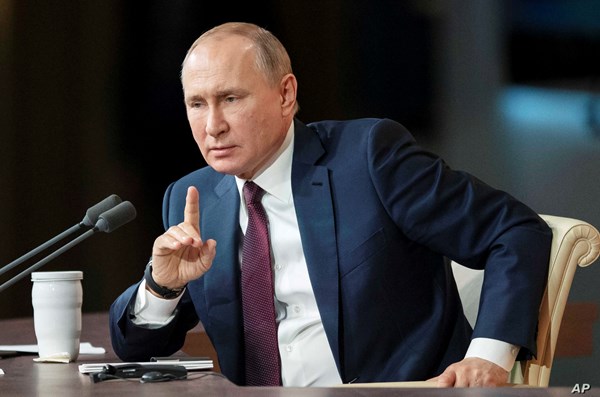Putin: Wagner PMC no longer exists
Russian president Vladimir Putin said he had a meeting with the founder of the Wagner PMC, Yevgeny Prigozhin, and his mercenaries.
"At a meeting with them, I gave an assessment of what they did on the battlefield, and on the other hand, what they did during the events of June 24. Thirdly, I showed possible options for their further service, including combat. That's all," Putin told the correspondent of the newspaper Kommersant.
The Russian president noted that "ordinary Wagner fighters fought with dignity," but "were drawn into these events," which is "regrettable."
"The commanders of the Wagner PMC were not against the transition to the Russian Defense Ministry, but Prigozhin refused, saying: "No, the guys do not agree with this decision," Putin said.
When asked by a journalist whether the Wagner PMC would remain as a combat unit, Putin said that such a unit does not exist.
"We don't have a law on private military organizations! It just doesn't exist!" the Russian president exclaimed.
After the rebellion, Putin reproached Prigozhin for the billions spent from the country's budget on his group and threatened with a criminal case for possible embezzlement of allocated funds. Putin also provided the details of the Wagner funding. The group received 70 billion 384 million in cash, 15 billion 877 million for bonus payments, 110 billion 179 million for insurance payments.
The meeting between Putin and Wagner representatives, according to the French newspaper Libération and Kremlin spokesman Dmitry Peskov, took place on June 29, that is, five days after the armed rebellion. However, some experts believe that it did not exist at all.
According to retired US Army General Robert Abrams, Yevgeny Prigozhin was either killed or behind bars.
"We will never see Prigozhin again," he said in an interview with ABC News.
Abrams called the story of the meeting between Prigozhin and Putin on June 29 in the Kremlin an invention and a propaganda maneuver. According to him, they want to convince the Russians that after the failure of the rebellion, the Wagner mercenaries showed loyalty to the Russian president, and he retains control over the situation.
On June 23-24, Wagner PMC detachments attempted an armed rebellion. Units of a private military company first seized the headquarters of the Southern Military District in Rostov-on-Don. After that they moved towards Moscow. After marching 200 kilometers to the Russian capital, the mercenaries turned around and went back to the field camps. It is alleged that the rebellion was "curtailed" thanks to the intervention of Alexander Lukashenko.
After the rebellion, Putin made two video appeals to Russians. He called the rebels traitors who "will suffer inevitable punishment", and the situation itself - "treason", "a knife in the back of the country and the people."
